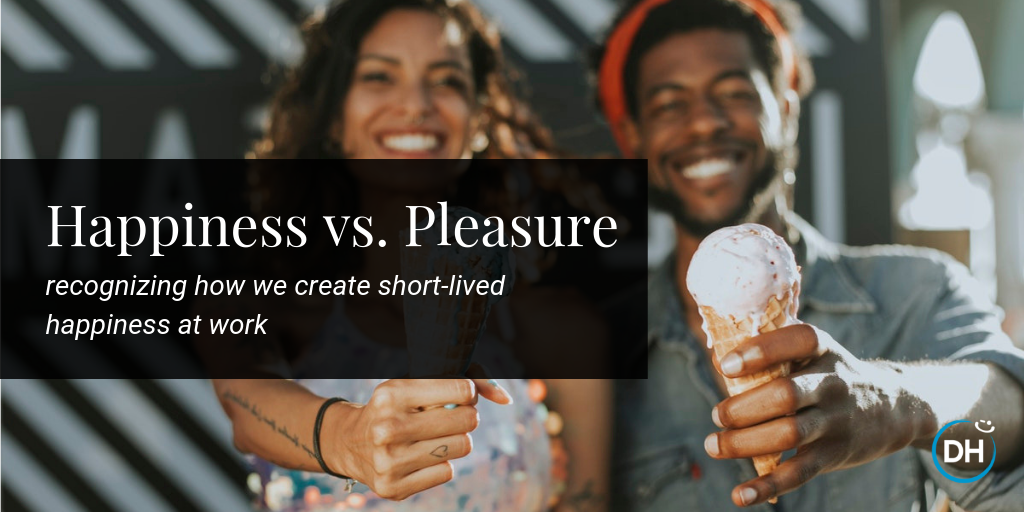
To understand how individual happiness and pleasure impact collective culture and purpose, we must first answer a few big questions:
If you substitute the word “pleasure” for “happiness” above, the same answers apply. Now we must ask:
The science behind happiness and pleasure is sourced in the fields of neuroscience, medicine, and psychology. It draws heavily on research summarized in the book The Hacking of the American Mind by Dr. Robert Lustig (2017). This post extends Dr. Lustig’s insights into the realms of organizational culture and business strategy.
One key insight from the book: U.S. culture tends to confuse happiness and pleasure. Fortunately, Dr. Lustig enumerates seven differences between the two. Quoting him from a 2017 interview with the University of California TV, he clarifies.
-- Dr. Robert Lustig
Dr. Lustig explains WHY understanding these differences is of vital importance. One chief reason is: excess dopamine can lead to addiction, which erodes both present and future happiness. In simple neuroscience terms, dopamine downregulates serotonin. The result, states Lustig in the same interview, is that “the more pleasure we seek, the more unhappy we get.”
Related: 3 Elements for Creating the Right Culture for Employee Happiness
Let’s switch gears and apply Dr. Lustig’s insights to organizational culture as a means of delivering happiness – the neuroscientific definition of happiness.
Keep in mind: pleasure has its place. The key is the proper proportion of pleasure relative to happiness. The goal is a balance of both.
Which organizational activities and policies tend to produce dopamine (pleasure), and which produce serotonin (happiness)?
This table sheds some light on this question. The last two columns share insights into organizational business culture based on our new understanding of the science of happiness and pleasure.
.png?width=1137&name=req_blogpost-infographic-01%20(3).png)
Note: Adapted from The Hacking of the American Mind, by Dr. Robert Lustig (2017)
A note from the author…
In full transparency, I have not met Dr. Lustig, nor do I receive anything for writing about his book. Despite its foreboding title, I found The Hacking of the American Mind to be quite optimistic, given its informative content. I highly recommend it to anyone interested in living a happier, healthier, more purposeful life. This recent interview with Dr. Lustig summarizes it nicely. He also narrates the audiobook, which I recommend.

Gabriel Kauper is writer, poet, and PhD candidate. His research focuses on Blue Ocean Strategy, cultural evolution, and purpose-driven organizations. For over a decade, he has served as a trusted advisor to the private sector, non-profits, schools, and individuals – empowering them to be their better selves. He lives in Los Angeles.